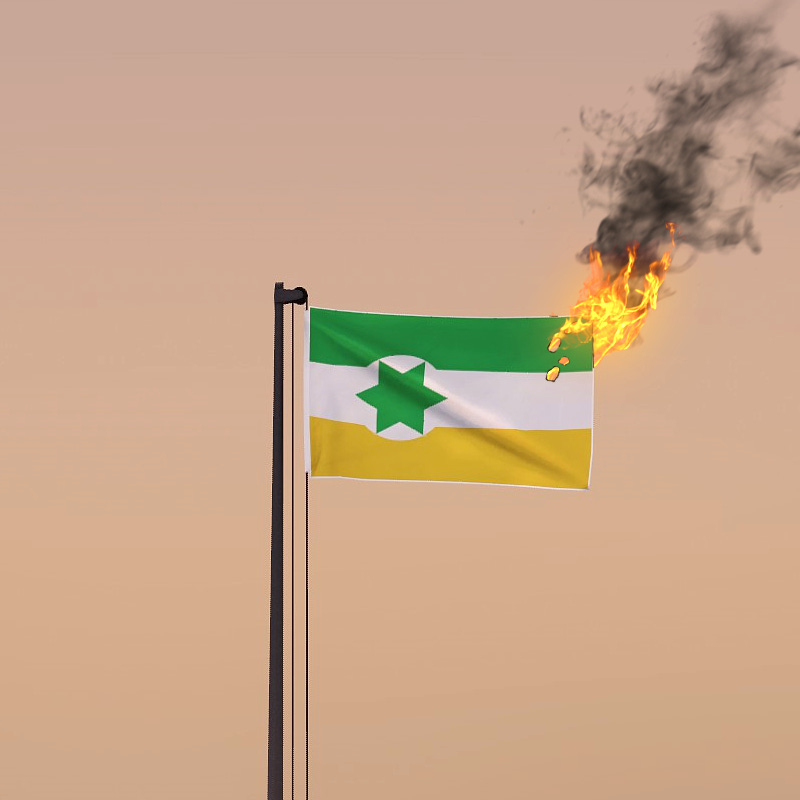Hello, and thanks for taking the time to check out my story. I’d like to start by thanking all the people who have provided me with advice or inspiration in creating my own work. This list will certainly grow over time, so keep checking back if you’re interested in people who make cool stuff:
njmksr, whose series Waybound can be found here
Un_a_valeable, whose series Double Victory can be found here
Without further ado, I will now attempt to set out everything you need to know about IN ROLLS A STORM.

What is the story actually about?
There’s more than one answer to this question. The most simple answer is that IN ROLLS A STORM is, as this website’s tagline suggests, a fictional depiction of war as it might soon be fought. The story follows a wide cast of characters, and their actions immediately before and during the short but intense Salipan War of 990 AC, in which the United Kasaran Republic’s invasion of the Republic of Salipan reignites a long-dormant conflict between the former and its main economic and military adversary, the Altirian Federation.
The story is also an allegory for our own world. The technology of these characters’ world parallels that of our own, albeit half a decade or so ahead of our own. The states and nations of this world occupy many of the same roles and positions that our own do, and its people struggle with many of the same problems that we do. One of the main reasons why I chose to set this story in a fictional world instead of our own is that I have no interest in trying to predict the future. My goal in writing this story is not to tell you how a near-future war will be fought, both in terms of the actions of its participants and the tools they use, but to analyse how they might, and perhaps how they should.
The third and final answer is that IRAS is an exercise in worldbuilding. It’s about all the things that I think are cool; politics, machines, strategy, and so on. I suppose the thing they all have in common, and that makes them appeal to me, is that they all consist of a lot of moving parts. This setting is a great outlet for me to try and design a whole bunch of systems that meet different requirements, and hopefully, teach you something you didn’t know about how their real-life counterparts work. It should be noted, however, that the worldbuilding of IRAS is not as deep and extensive as that which people more talented than me have created, which leads nicely to the second question:
How come everyone speaks English?
The short answer is that they don’t. The best way to approach the text in IRAS is to imagine that it’s been translated from the various languages spoken by its characters into English, in a manner that prioritises conveying meaning over word-for-word translation. For example, if a character uses an expression that couldn’t actually exist in their world, assume that they used an expression that does make sense in their world, but which carries the same meaning as that expression. It’s a bit lazy on my part, but it works.
Similarly, owing to the subject matter of the story, there’s a near-endless list of military ranks, terms and designation systems in use by all sides of the conflict. In the interest of making the story parseable to as many people as possible, most terminology has been translated into those used by the US military, and exceptions to this rule will be noted within the text to avoid confusion. Again, this segues to the next question I want to answer:
How do I remember all of these names?
Good news! You don’t, because hosted on this site is the official IRAS Glossary, which can be found at the top of the page. This will contain short descriptions of all the fictional people, places, organisations, companies, weapons systems and cultural references that appear in the story, and will be updated after each new post where necessary. Some but not all real-world terminology will be included, with inclusion being dependent on how easy or difficult it is to find a definition for a term on the internet. One particularly useful outside source might be the Pentagon’s Dictionary of Military and Associated Terms. I won’t apologise for instances in which the prose of IRAS gets a bit dense with jargon, because it’s intentional, but hopefully the presence of the glossary will make the story a bit easier to read.
Hopefully this makes it slightly easier for you to read IN ROLLS A STORM. This page will most likely be updated several times to add information that’s currently missing. That said, you’re more than welcome to ask questions in the comments to this post or any other, and I’d be more than happy to try and answer them for you. Again, thanks for taking the time to have a look at what I’m writing.






Another interesting story to follow! (I write my own too although its an anime fanfic but same theme)